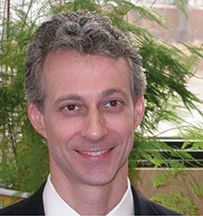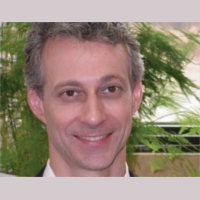Treatment in oral health care is becoming ever more personalized with the development of salivary  diagnostics. Clinicians can already use these tests to gather detailed data about microbes in the oral cavity, but work is moving forward to include the ability to detect genetic information that can identify systemic illness.
diagnostics. Clinicians can already use these tests to gather detailed data about microbes in the oral cavity, but work is moving forward to include the ability to detect genetic information that can identify systemic illness.
Significant growth is anticipated for the scope of salivary diagnostics. These tests already are used in the dental setting to identify caries and periodontal disease, but trials are underway for devices designed to detect serious systemic diseases, such as cancer. On the front lines of these trials is David T.W. Wong, DMD, DMSc, the Felix and Mildred Yip professor, associate dean of research, and director of the Center for Oral/Head and Neck Oncology Research at the University of California, Los Angeles (UCLA) School of Dentistry.
Wong is an active scientist in oral cancer and saliva diagnostics research. He runs a lab at UCLA that focuses on the genomic and proteomic determinants of oral cancer progression, known as “omics.” Of the benefits of Wong’s research into salivary diagnostics, he says, two bear particular significance. “The primary importance of being able to conduct salivary testing in the dental office is that saliva harbors omics constituents, which can be used for personalized and/or precision medicine and dentistry applications.” Another important aspect of this development, Wong says, is that the dental office is the logical venue to procure and evaluate the omics targets for disease detection and wellness monitoring.
Only tests that have attained regulatory approval should be used in the office setting, according to Wong. “Secondary to that,” Wong says, “what will help advance the use of salivary testing is the clinical performance the tests provide, relative to sensitivity and specificity, in a specific clinical context of use.”
Oral health professionals and healthcare providers have high hopes for salivary testing, and there is particular interest in dentistry regarding whether salivary diagnostics will live up to its potential. Wong says he expects salivary testing will deliver on its promise, even though it has yet to do so. “The reason is that salivary testing has yet to reach clinical regulatory approval,” Wong says. Once that approval is granted, he expects it to be adopted widely.
As Wong envisions it, the new technology will enable universal cancer screening to be administered in the dental office. This, he says, places the dental clinician “at the head of the pack,” in the ability to identify many cancer indicators at the front line of primary health care. By extension, oral health professionals will also take on the responsibility of referring patients to medical providers for the next phase of care.
Source: Jonathan Richter, DDS, FAGD, of Cariodontal (310 E. Shore Rd., Ste. 101, Great Neck). For more information or to schedule an appointment, call 516-282-0310 or visit Cariodontal.com.





